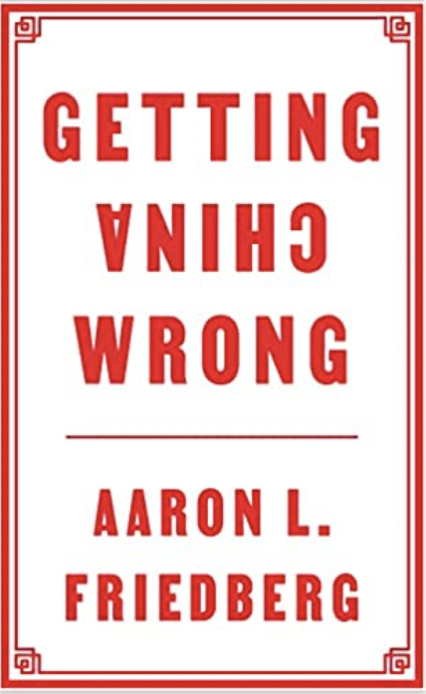
How the West got China Wrong


The West’s strategy of engagement with China has failed. The result of more than three decades of trade and investment with the advanced democracies has left China far richer and stronger than it would otherwise have been. But growth and development have not caused China’s rulers to relax their grip on political power, abandon their mercantilist economic policies, or accept the rules and norms of the existing international system. China today is more repressive at home, more aggressive abroad, and intent on establishing itself as the world’s preponderant power than at any time since the death of Chairman Mao. The relationship between China and the US will shape the world’s future in every dimension as both Republicans and Democrats agree that China is a huge threat to America’s interests and values.
Professor Aaron Friedberg of Princeton University thinks economics cannot be separated from politics. The Chinese Communist Party is, he argues in “Getting China Wrong”, a Leninist organisation ruthlessly dedicated to its own power, as “Beijing believes that rivalry with the West is inescapable and the stakes are existential”. The relationship between the US and China is fundamentally different from that in the cold war, which was an ideological and security conflict, as the two sides are engaged in an economic competition, which the Soviets lost, but they were economically disengaged from each other. China has created an economy that already overtakes America in many dimensions, as China and the West is economically interconnected with each other and the rest of the world.
Frieberg says “What is emerging today, is an intensely global, economic, technological, military, diplomatic, and ideological rivalry between two superpowers”.
“ Engagement was a gamble rather than a blunder, but the odds were always extremely long. A more accurate appreciation of the CCP regime might have instilled a greater sense of realism about the chances of success and a heightened sensitivity to early indications of failure.”
Freidberg recommends “ The United States and its partners must mobilize their societies for a protracted rivalry with China and harden them against the CCP influence operations, partially disengage their economies from China’s while strengthening ties among themselves, intensify military preparations and diplomatic measures to deter coercion or aggression, and actively challenge Beijing’s ideological narratives, both in the developing world and to the extent possible, inside China itself”.
China’s support of Russia’s invasion of Ukraine and attempt to split Europe from the US is unacceptable. China has, chosen to be the West’s enemy and will prove to be a tragedy for humanity.
The democracies underestimated the resilience, resourcefulness, and ruthlessness of the Chinese Communist Party. The United States and its allies failed to take seriously the Party’s unwavering determination to crush opposition, build national power, and fulfill its ideological and geopolitical ambitions.
Friedberg identifies the assumptions underpinning engagement, describes the counterstrategy that China’s Communist Party rulers devised in order to exploit the West’s openness while defeating its plans, and explains what the democracies must do now if they wish to preserve their security and defend their common values.
Getting China Wrong by Aaron Friedberg, Polity, £25 246 pages.
